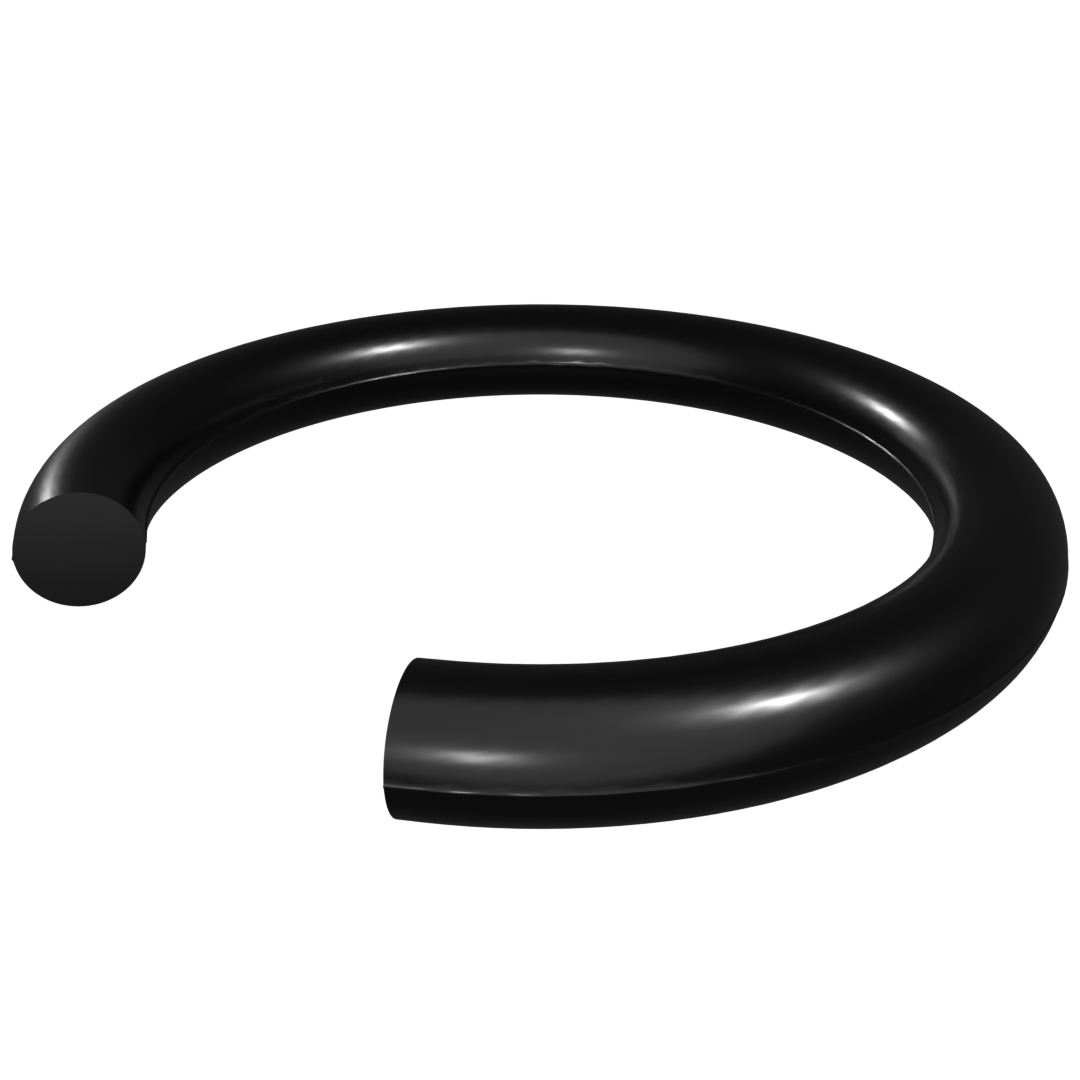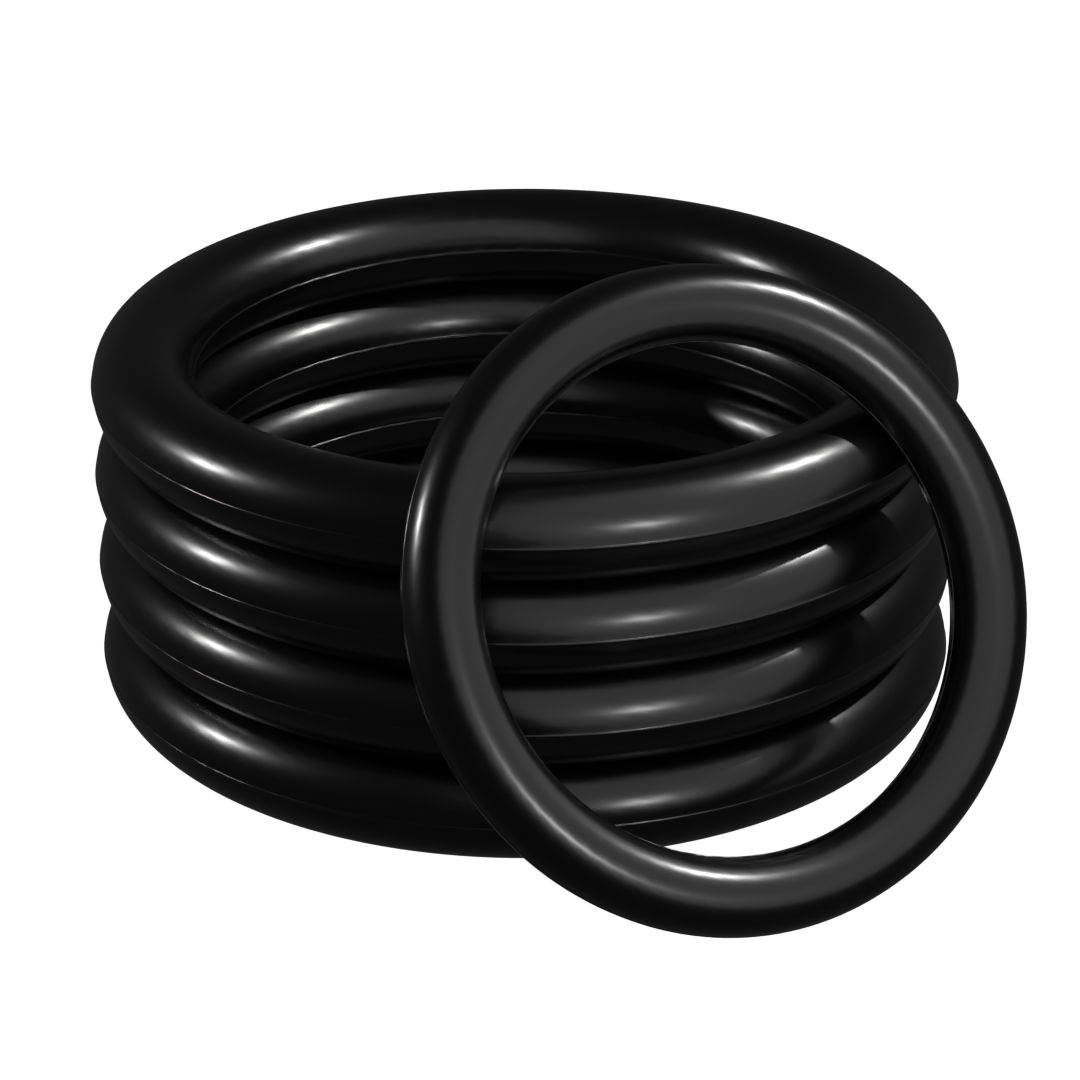
Isoprene Rubber (Polyisoprene)
Isoprene Rubber (IR), also known as Polyisoprene, is a synthetic elastomer that closely mimics the properties of natural rubber. It offers excellent resilience, flexibility, and elasticity, making it ideal for applications that require high tensile strength and good resistance to wear and tear. Isoprene rubber is commonly used in industries such as automotive, medical, and consumer goods, where durability and flexibility are critical. Its ability to perform in a wide range of temperatures and environments makes it a versatile choice for various applications.
Check with one of Canyon’s helpful product engineers for an expert material and manufacturing recommendation.
Common names include: Polyisoprene, Synthetic Isoprene, IR, IR Rubber, Synthetic Rubber, Isoprene Elastomer.

Features of Isoprene Rubber
Isoprene Rubber offers several distinct features that make it suitable for various industrial and commercial uses:
- Excellent Elasticity: IR rubber has a high degree of elasticity, closely resembling natural rubber in its ability to stretch and return to its original shape, making it ideal for dynamic applications.
- High Tensile Strength: Isoprene rubber provides excellent tensile strength, which allows it to withstand stretching and mechanical stress without breaking.
- Good Tear Resistance: This elastomer is resistant to tearing and abrasion, ensuring durability in applications where repeated flexing or contact with surfaces is common.
- Low-Temperature Flexibility: IR rubber remains flexible even at lower temperatures, allowing it to perform in a variety of climates and conditions.
- Biocompatibility: In the medical field, isoprene rubber is often used due to its biocompatibility, making it safe for use in medical devices and applications that involve contact with the human body.
Common Applications of Isoprene Rubber
Isoprene rubber is used across a variety of industries due to its high resilience and versatility:
- Medical Gloves and Catheters: In the medical field, isoprene rubber is used to manufacture gloves, catheters, and other medical devices, where its biocompatibility and elasticity are crucial for patient safety and comfort.
- Automotive Seals and Gaskets: Isoprene rubber’s flexibility and durability make it ideal for use in seals, gaskets, and O-rings in automotive applications, ensuring tight seals and resistance to wear.
- Tires and Tubes: In the automotive and industrial sectors, IR rubber is often used in tire and tube production due to its flexibility and ability to absorb impacts.
- Conveyor Belts and Hoses: Isoprene rubber is commonly used in conveyor belts, hoses, and tubing where flexibility, wear resistance, and durability are required.
- Footwear and Consumer Goods: Isoprene rubber is used in the soles of shoes and various consumer goods that require durability, flexibility, and impact resistance.
Please consult a Canyon Components Engineer about your specific application and we will use our decades of experience to formulate a solution that fits your need.
Get a Quote Now!

Isoprene Rubber (Polyisoprene) Pros & Cons
Isoprene Rubber (Polyisoprene) is a versatile and resilient elastomer that offers excellent elasticity, flexibility, and tensile strength. With applications ranging from medical devices to automotive seals and consumer goods, IR rubber provides long-lasting performance in dynamic and demanding environments. While it has some limitations, such as poor oil and weather resistance, its biocompatibility, low-temperature flexibility, and durability make it an essential material for many industries. Understanding the features, applications, and potential drawbacks of Isoprene Rubber will help you select the right material for your specific needs.
Canyon Components strives to meet all customer service requests. Feel free to contact Canyon Components engineering and let our knowledgeable staff help you design the perfect part for your needs.
Pros of Isoprene Rubber
Isoprene Rubber offers numerous benefits that make it a preferred material for a wide range of applications:
- High Elasticity and Flexibility: IR rubber’s excellent elasticity ensures that it can stretch and return to its original shape without losing its integrity, making it ideal for dynamic applications.
- Good Abrasion and Tear Resistance: Isoprene rubber can withstand wear and tear, providing long-lasting performance in demanding environments such as automotive and industrial applications.
- Biocompatibility for Medical Applications: IR rubber is a safe, biocompatible material, making it suitable for medical devices and products that come into contact with human skin.
- Low-Temperature Performance: Isoprene rubber maintains its flexibility and resilience even in colder environments, offering reliable performance across a wide temperature range.
- Close Natural Rubber Alternative: IR rubber is a synthetic material that mimics the properties of natural rubber, offering similar performance characteristics with greater control over consistency and quality.
Cons of Isoprene Rubber
While Isoprene Rubber has many advantages, there are some limitations to consider:
- Poor Oil and Chemical Resistance: IR rubber has limited resistance to oils, fuels, and other chemicals, which can cause it to degrade over time in environments exposed to these substances.
- Limited Weather Resistance: Isoprene rubber is not as resistant to ozone, UV light, and other environmental factors as some other elastomers like EPDM or neoprene, leading to potential degradation in outdoor applications.
- Higher Cost than Natural Rubber: While synthetic, IR rubber can sometimes be more expensive than natural rubber, making it less cost-effective for some high-volume or less demanding applications.
- Limited Heat Resistance: Isoprene rubber has a lower threshold for heat resistance compared to some high-performance rubbers, which may limit its use in high-temperature applications.
Back to Elastomers Hub

Get A Quote Now!

